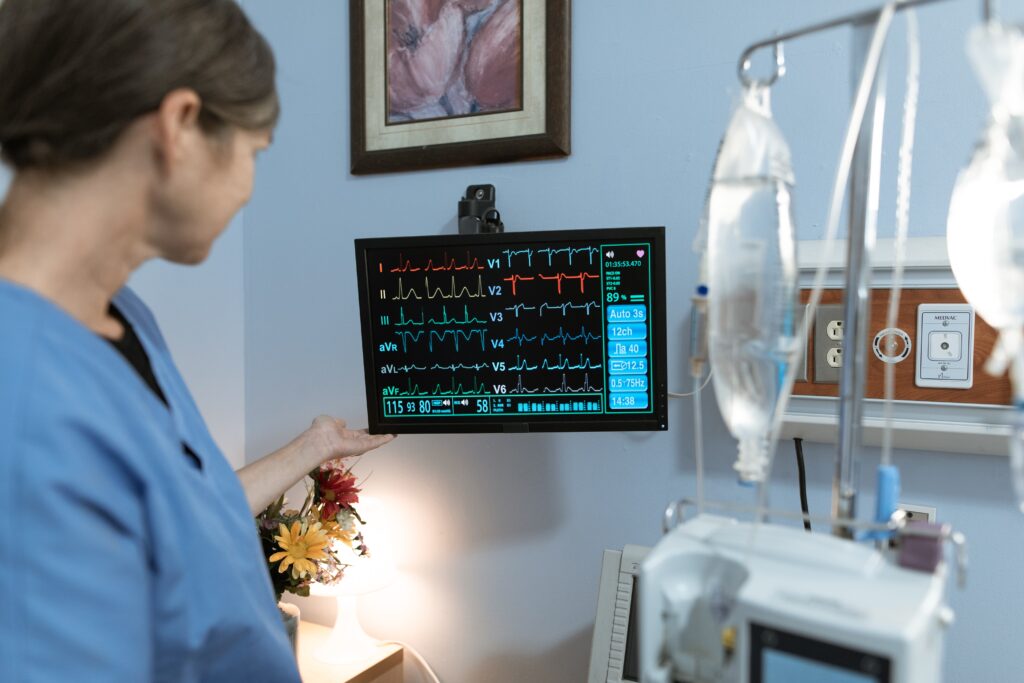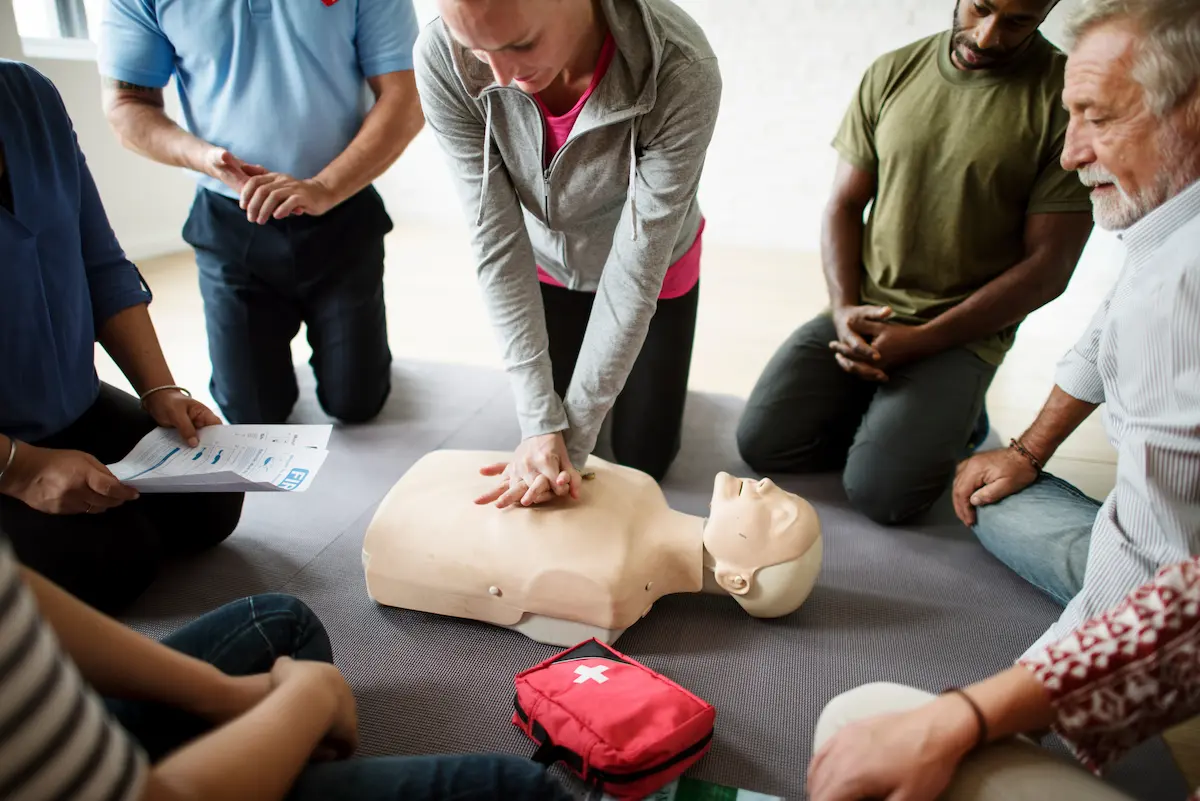Telemetry nurses play a critical role in our health care system. From monitoring cardiac patients using specialized telemetry equipment, to assisting with various cardiac procedures and treatments, telemetry nursing is a challenging yet rewarding career.
In this article, you will learn what a telemetry nurse is, the roles and duties associated with this role, and how to become a telemetry nurse.
What is a telemetry nurse?
A telemetry nurse specializes in treating acute patient conditions like cardiovascular issues, renal failure, heart failure, and other related complications. Such conditions require the use of telemetry tools to monitor patient vital signs. These nurses have a vast knowledge of interpreting data and using that data to assess a patient’s conditions.
Typically, you will find a Telemetry RN in the telemetry or cardiac step-down units of a hospital, working with patients who were transferred from cardiac and intensive care units. These patients require close observation while they recover, and telemetry nurses need to monitor vital signs and respond quickly to any sudden changes. This unit is often a great way for those interested in the ICU or emergency departments to gradually prepare for a high-pressure environment.

How to Become a Telemetry Nurse
Step 1: Complete Your Nursing Degree
First thing’s first – Before you become a telemetry nurse, you must become an RN. To do this, you need to obtain an associate degree in nursing (ADN) or a bachelor’s degree in nursing (BSN).
Step 2: Get Your RN Certification/License
Once you graduate from an accredited nursing program, it’s time to take the National Council Licensure Examination for RNs (NCLEX-RN). You must register for the NCLEX-RN in the state where you wish to practice. Make sure you meet the eligibility requirements to take the exam. Each state has different requirements that are set by the state’s board of nursing.
Step 3: Gain Relevant Experience
Typically to get a certification in the telemetry nursing field, you will need at least one year of nursing experience. Requirements will vary based on the job posting, but it’s best to get practice hours under your belt before you complete other telemetry nurse certifications.
Another great way to expand your skills is through taking various courses and trainings. Check out the courses offered by the American Association of Critical-Care Nurses.
Step 4: Earn Telemetry Certifications
Once you have clinical hours on your resume, many hospitals might require you to have specific certifications:
ACLS Certification: The Advanced Cardiovascular Life Support (ACLS) certification is earned through the American Heart Association. After successful completion of the course, the certification is valid for two years.
PCCN Certification: The Progressive Care Certified Nurse (PCCN) is obtained through the American Association of Critical-Care Nurses. It often takes longer to get this certification due to certain requirements, such as working a set number of hours in acute patient care.
Cardiac Medicine Certification: The Cardiac Medicine Certification (CMC) is also earned through the Association of Critical-Care Nurses. This certification is for certified nurses who provide direct care to acutely ill adult cardiac patients.
Roles and Duties of a Telemetry Nurse
Telemetry nurses have a wide range of responsibilities. Some common duties include:
- Use medical equipment like EKG machine to evaluate patient heart and respiratory rhythms
- Monitor and record patient vital signs including temperature, oxygen levels, blood pressure, breathing patterns, etc.
- Administer medications, IVs, and other medical treatment as needed
- Perform a variety of diagnostic tests to evaluate cardiac health
- Assist cardiologists in all phases of cardiac procedures
- Provide treatment plans and educate patients on diagnoses, treatment methods, cardiac health, medications, and other medical information
While there are plenty of technical roles and duties a telemetry nurse will perform, there are also interpersonal skills that are important to have. Telemetry RNs will work with high-risk patients and therefore need to be able to remain calm in stressful situations and act effectively under pressure.
Telemetry nurses should also be excellent communicators. They will need to explain any changes in vitals to patients or family members, as well as educate patients on lifestyle adjustments and treatment methods. These responsibilities require clear communication and direction.
Job Outlook for Telemetry Nurses
The need for telemetry nurses is high, especially because of the specialized training involved in this area of nursing. With ongoing advancements in health care technology, the industry will always need nurses with the knowledge and understanding of this technology. Telemetry nurses typically work in the telemetry or cardiac step-down units of a hospital but can also be found in environments such as sleep centers, patient homes, and outpatient care centers.
With cardiac issues being one of the main health problems in America, health care providers looking to enter this in-demand specialty will find that telemetry nursing is a rewarding and stable career.
Interested in taking the next step in your telemetry nursing career?
Favorite Healthcare Staffing has immediate openings for experienced telemetry nurses for per diem and travel nurse contract assignments across the country! If you’re searching for a rewarding role where you can make a positive impact on patient lives and gain exposure to modern medical technology, take a look at our telemetry nurse jobs.
Looking for more ways to stay connected? Check out other posts on our healthcare blog and follow Favorite on social media – Facebook, Instagram, LinkedIn, Twitter!
References:
https://www.registerednursing.org/specialty/telemetry-nurse/
https://www.rasmussen.edu/degrees/nursing/blog/what-is-telemetry-nursing/
https://www.indeed.com/career-advice/finding-a-job/telemetry-unit
https://www.travelnursing.org/best-cities-for-travel-nurses/





